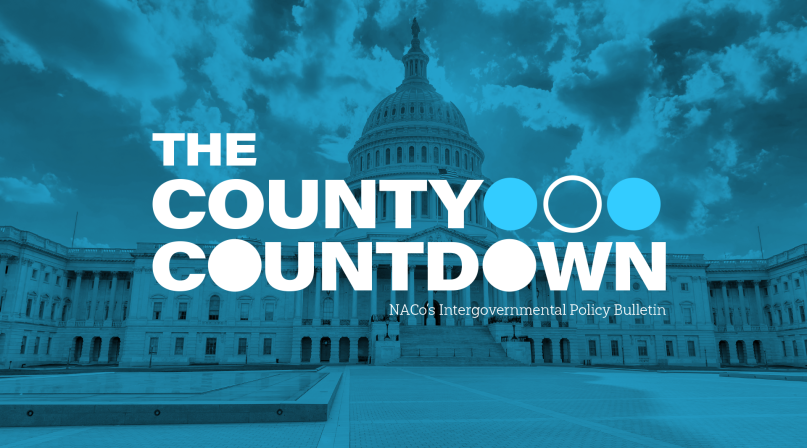County Countdown – September 24, 2024
Upcoming Events
Related News

Every other week, NACo's County Countdown reviews top federal policy advocacy items with an eye towards counties and the intergovernmental partnership.
Watch the video above and explore NACo resources below.
PILT Fly-In
NACo recently wrapped up its annual Payments In Lieu of Taxes (PILT) Fly-In in Washington, D.C., where county officials from across the country met with almost 60 Congressional offices to advocate for full PILT funding and swift reauthorization of the Secure Rural Schools program.
- Why it matters: Counties with public lands rely on PILT and SRS funds to offset revenue losses from non-taxable federal land. Securing full funding is crucial for counties to maintain essential services and infrastructure.
- Public lands forum: NACo's National Center for Public Lands Counties hosted the Intergovernmental Forum on Public Lands to learn more about public lands economies, land management, challenges and opportunities. Watch the livestream here.
Protecting America's Children by Strengthening Families Act
The U.S. House of Representatives recently passed the bipartisan Protecting America's Children by Strengthening Families Act, which reauthorizes a key child welfare program that supports counties in providing flexible services to at-risk children, youth and families involved with the child welfare system.
- Legislation impact: This bill enhances counties' ability to deliver necessary resources and services to vulnerable families, furthering local efforts to improve child welfare outcomes.
- Next steps: NACo is advocating for this bill's passage into law to ensure continued support for child welfare services. Click here to learn more.
Mental Health Parity
The U.S. Department of Treasury, Labor and Health and Human Services issued a final rule to further enforce provisions of the Mental Health Parity and Addiction Equity Act.
- Enhancing county support: This update provides crucial guidance for local governments and adopts a collaborative approach to compliance enforcement. Click here to learn more.
- Mental health parity was a pillar of NACo’s Commission on Mental Health and Wellbeing, and these measures mark significant progress in supporting counties' efforts to improve behavioral health outcomes for our communities.
Capitol Hill Briefing on PFAS
On September 16, NACo cohosted a briefing on Capitol Hill about PFAS, a group of synthetic chemicals of increasing concern from a public health standpoint.
- Mitigation strategies: The briefing highlighted the recent EPA designation of certain PFAS compounds as hazardous and facilitated discussions with Congressional staff on effective ways to mitigate the impact of PFAS in our communities.
- Key concerns: NACo emphasized the need for increased liability protections for counties as passive receivers of PFAS and addressed the compliance costs facing local governments.
Heavy Trucks
NACo is actively opposing proposed legislation that seeks to increase the size and weight of heavy trucks. With counties owning nearly half of all public road miles and one out of four bridges in America, this issue significantly impacts local infrastructure.
- Infrastructure concerns: Currently, at the 80,000-pound threshold, heavy trucks already cause substantial wear and tear, with no funding to address these impacts.
- Cost implications: A study by county engineers and partners revealed that upgrading local bridges to accommodate the new proposed weights would cost over $78 billion.
Related News

County Countdown – January 28, 2025
Every other week, NACo's County Countdown reviews top federal policy advocacy items with an eye towards counties and the intergovernmental partnership.

Heavier truck proposals in Congress threaten county bridges
Congress has already taken steps to increase maximum allowable truck weight, but county leaders should be sounding the alarm about what that can mean for their roads and bridges.

NACo submits comments on proposed rules regarding new foster care requirements and strengthening TANF
On November 27 and December 1, NACo submitted comments on two Notices of Proposed Rulemaking from the U.S. Department of Health and Human Services Administration for Children and Families that would impact county administration of federal child welfare and anti-poverty programs.



